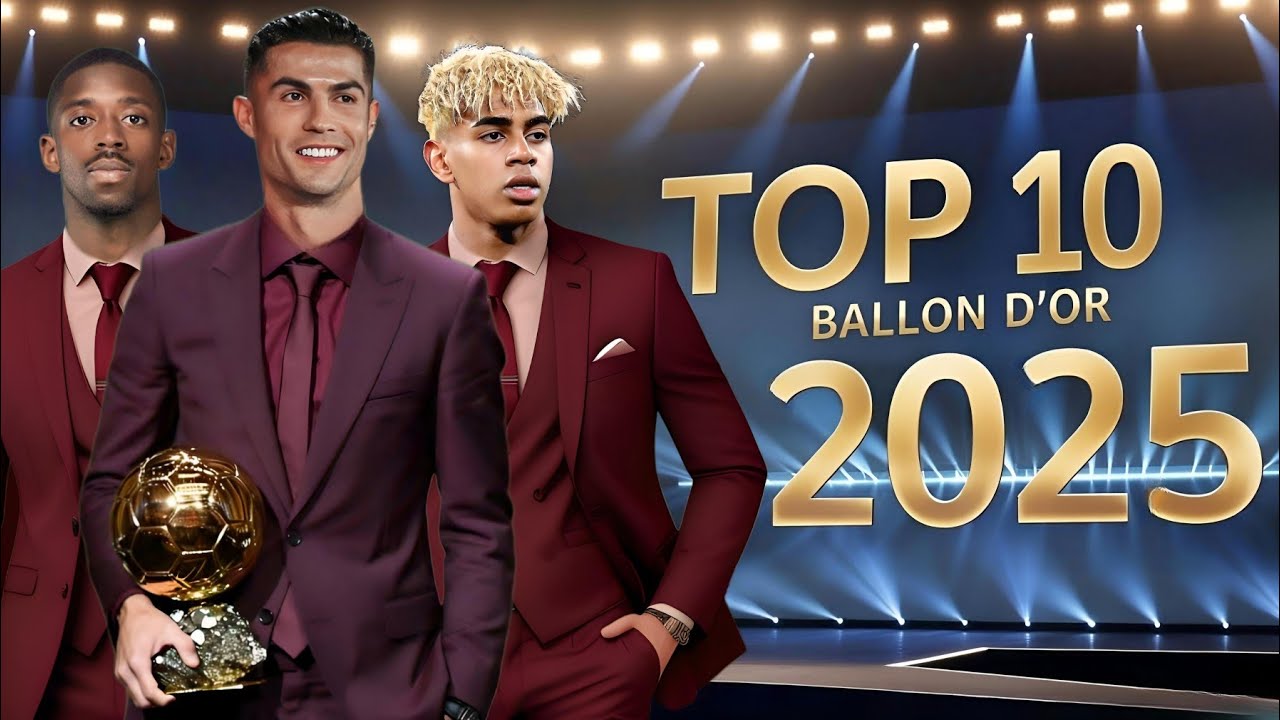
The annual announcement of Ballon d`Or nominees invariably ignites a global conversation, a vibrant tapestry woven from statistics, unforgettable moments, and fervent partisan support. It`s a tradition that transcends mere recognition, morphing into a grand philosophical debate on what truly defines the `best` in a team sport. As the curtain fell on the 2024-25 football season, ushering in the selection period from August 1, 2024, to July 31, 2025, a fresh wave of contenders emerged, each with a compelling, if sometimes contentious, claim to football`s most coveted individual accolade.
The Perennial Paradox: Individual Brilliance vs. Collective Glory
At the heart of every Ballon d`Or discussion lies a fascinating paradox: how does one quantify individual greatness within the intricate machinery of a team? Is it the player who consistently delivers jaw-dropping statistical output, the architect of goal after goal and assist after assist? Or is it the linchpin of a championship-winning squad, whose contributions, though perhaps less visible on a highlight reel, were absolutely essential to lifting major silverware? The answer, as many veteran observers will attest, is rarely straightforward. It`s a delicate balance, an artistic judgment more often than a scientific equation.
Consider the arguments: a player might amass an astonishing tally of goals and assists, shattering league records, yet their team falls short of the ultimate prize. Conversely, another might contribute fewer direct goal involvements but leads their side to a domestic title or a Champions League triumph, their influence profound in critical moments. This tension formed the very bedrock of hypothetical voting exercises undertaken by various football pundits, reflecting the subjective labyrinth that voters navigate annually.
Hypothetical Ballots: A Glimpse into the Nuance
In a recent hypothetical exercise mirroring the official Ballon d`Or selection process, football analysts provided their top picks across several categories: the Men`s and Women`s Ballon d`Or, the Yashin Trophy for goalkeepers, and Coach and Club of the Year. This simulated vote provided a telling microcosm of the broader debate. For instance, in the Men`s category, one standout candidate amassed a staggering 34 goals and 23 assists, setting new Premier League benchmarks despite his club not securing the Champions League. His sheer output was undeniable, a statistical juggernaut that forced consideration.
Yet, another contender, celebrated for his pivotal role in a Champions League-winning campaign, might garner favor from those who prioritize the ultimate team prize. Even within the same club, the brilliance of a veteran could be challenged by the meteoric rise of a prodigious young talent, potentially splitting votes and complicating a clear consensus. It`s a scenario that highlights the qualitative element of these awards; a beautiful goal can weigh as heavily as a crucial defensive block, depending on the beholder`s perspective.
The Women`s Ballon d`Or often presents similar complexities. Reigning favorites, adorned with domestic and international success, may find their dominance questioned if an opponent triumphs in a major final. Is the best player the one who consistently performs, or the one who shines brightest when the stakes are highest? The choices made in these hypothetical ballots, from top goalscorers to defensive stalwarts and tactical masterminds, underscored the sheer breadth of excellence on display in the past season and the varied metrics by which it can be judged.
Beyond the Podium: Recognizing the Backbone of Success
The Ballon d`Or ceremony extends beyond the top individual honors, acknowledging the crucial roles of goalkeepers, coaches, and even entire clubs. The Yashin Trophy, dedicated to the world`s best shot-stoppers, demands a unique evaluation: the ability to command the box, make improbable saves, and initiate attacks. Similarly, Coach of the Year awards celebrate the strategic minds behind successful campaigns, those who extract peak performance from their squads and navigate the relentless pressures of professional football. These categories, while distinct, are inextricably linked to the individual player awards, as a great team often elevates its stars, and a brilliant coach can unlock unprecedented potential.
Even the `Club of the Year` award, seemingly straightforward, invites reflection. Is it the club that dominates domestically, or the one that conquers Europe? The institution that fosters young talent, or the one that makes shrewd transfers? Each hypothetical selection here, too, reflects a specific philosophy of success, whether it`s built on a foundation of established stars or the rapid ascent of a dynamic new force.
The Enduring Allure of the Golden Ball
Ultimately, the Ballon d`Or, in all its iterations, remains a source of endless fascination. It is a spectacle that combines the precision of statistical analysis with the subjective beauty of human performance. While debates may rage, and indeed, sometimes border on the absurd, they are a testament to the passion football inspires and the extraordinary talent it showcases. As the actual votes are cast and the winners eventually unveiled, one truth will remain: the Ballon d`Or is not merely an award; it is a conversation, a reflection on the very essence of footballing excellence, forever inviting us to ponder who truly defines the beautiful game in any given year. And perhaps, that unending debate is the prize in itself.











